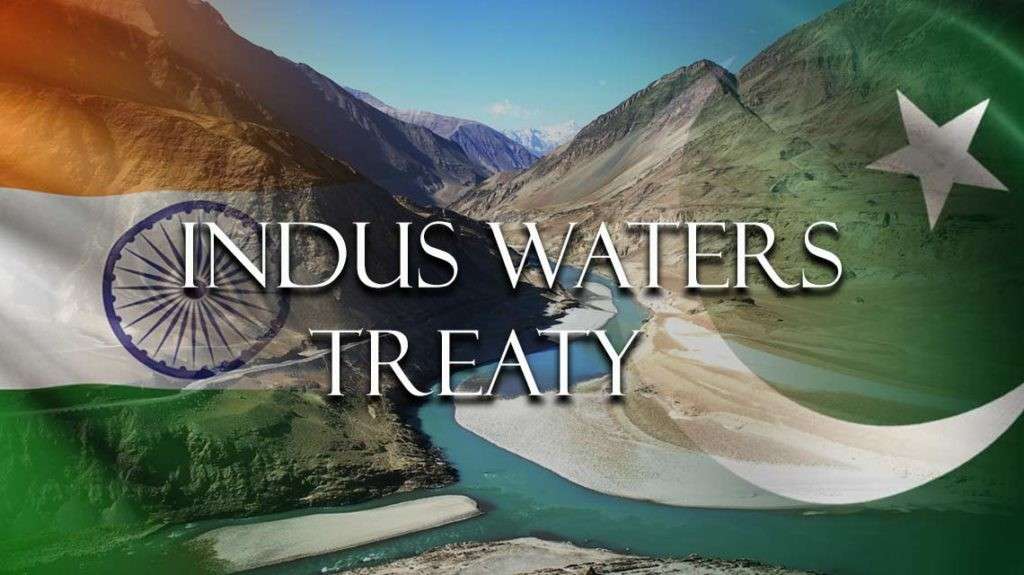In a move that has sent shockwaves across the subcontinent and the international community, India has officially suspended the Indus Waters Treaty (IWT) with Pakistan. This historic decision came in the aftermath of the Pahalgam terror attack on April 22, 2025. The decision was announced by India’s Cabinet Committee on Security (CCS), marking a profound shift in India’s approach to dealing with cross-border terrorism, not through war or retaliation alone, but through strategic leverage. India’s message was clear: if Pakistan continues to use terror as statecraft, India will respond not only militarily or diplomatically, but also by squeezing the lifeline of Pakistan, its water supply.
Water as a Weapon- “India’s Strategic Shift”
By suspending the treaty, India has moved to use water as a strategic weapon, a non-violent yet profoundly disruptive tool. For Pakistan, a country already on the brink of water scarcity, this development could have catastrophic consequences. According to the Indus River system forms the backbone of Pakistan’s economy, feeding over 80% of its irrigated agriculture and powering major hydroelectric projects that supply more than 30% of the country’s electricity.
Pakistan’s Deep Dependence on River Systems and the Looming Economic Fallout
This suspension threatens to unravel Pakistan’s already fragile agricultural sector. With nearly 38% of the population employed in farming, and agriculture contributing about 19% to the GDP, the disruption of water from rivers like the Jhelum and Chenab could decimate crop yields. Essential crops like wheat, cotton, and rice, all heavily dependent on consistent irrigation, are likely to suffer. Furthermore, mega irrigation projects like the Cholistan Canal Project, which aimed to convert over 1.2 million acres of arid land into farmland, now stand in jeopardy. Even the Punjab agricultural belt, Pakistan’s food production, risks turning into wasteland if the river flows are reduced or interrupted.
The impact does not stop at the fields. Cities such as Lahore, Multan, Sukkur, and Karachi depend heavily on water from the Indus basin for drinking and sanitation. Shortages could trigger unrest in urban areas, public protests, and even civil disorder. The country’s already overburdened infrastructure would struggle to meet the basic needs of millions, especially in poorer communities. With worsening health outcomes, sanitation failures, and a rise in waterborne diseases, the crisis could spiral into a humanitarian emergency.
The consequences also extend to Pakistan’s energy sector. Major dams like Tarbela and Mangla, both fed by the Indus, generate a significant portion of Pakistan’s electricity through hydropower. As water levels drop, electricity generation will decline, leading to widespread power outages. For a nation already grappling with blackouts and energy inflation, this would further cripple industries, disrupt services, and stifle economic growth. Some estimates predict a GDP decline of 2-4% annually if the treaty remains suspended.
India’s Strategic Realignment on the Indus Waters Treaty
India has faced challenges under the Indus Waters Treaty as the upper riparian state, bound by outdated provisions. India’s infrastructure projects on the western rivers, like the Kishanganga and Ratle hydroelectric projects, have faced resistance from Pakistan, which has sought international arbitration, delaying India’s progress.
Internationally, Pakistan is likely to seek legal redress, potentially appealing to the International Court of Justice or urging the World Bank, which is a guarantor of the treaty, to intervene. However, India has argued that its move is justified. In January 2023, India had issued a formal notice to Pakistan demanding the renegotiation of the treaty’s outdated provisions and dispute resolution mechanisms. Pakistan failed to respond adequately, and continued provocations in the form of cross-border terrorism further hardened India’s stance. Legal experts note that the treaty was never intended to be eternal in the face of persistent hostilities. India’s position is increasingly seen as one of strategic restraint replaced by strategic assertion.
India’s end of the Indus Waters Treaty reflects a shift in its regional strategy, moving from generosity to using its economic and military power, including water resources, as leverage in conflicts.
Pakistan is grappling with economic collapse and political instability. The world is watching whether it will support terrorism or change its policies, as India asserts its control over vital water resources.

